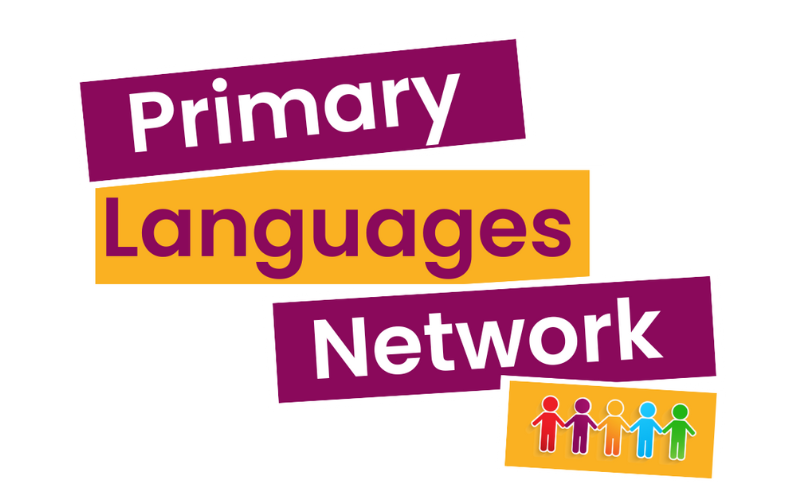This was our first network competition.The intention was to offer individual schools an opportunity to focus on a common purpose and to link their language learning with a special festival shared by the three languages our network schools teach - French,German and Spanish....so it had to be a carnival song competition!
"We looked first at the Carnaval powerpoint with the aliens and worked out what it meant. Then we talked about carnivals in France and Germany - we have a pupil who lived in Germany until recently - and why people celebrate carnival, mardi gras, etc.
I explained about the competition and that we were going to find carnival related nouns with garish colour combinations - like the scenes in the photos. I told them to choose nouns for things we could 'have' with us at the Carnaval, preferably nouns with 2 syllables, by looking back in their books at previous work and to add 2 colours (or one if it was violet) so the words would fit in with the tune. They went off and wrote verses then we sang quite a few to try them out and picked the best. "
Below is the challenge we set our network members:
Join in our Carnival Song Competition
The competition is open to all member of Janet Lloyd Primary Languages Network
Vouchers for primary language story books to be won!
KS1 or KS2 competition entries
Can your young learners create a carnival song in French, German or Spanish?
All they have to do is base the song on the language from the Year 3 or beginners stage of language learning in the JLN SOW (numbers, colours, days of week, months, animals, personal information).
- We based the competition on common language content
- We made sure the focus was simple language that all the teachers (non-specialist and specialist teachers would be comfortable with)
- We allowed schools to decide which classes would be best to enter the competition....
And we asked the teachers to follow these basic rules :
- The song should be at least four lines long
- The song should have a carnival rhythm or beat
- The song should be based on a familiar tune
- Percussion instruments such as maracas and a drum were allowed but we need to hear the words sung as clearly as possible
We required a sound file / video together with a word document
Did it work?
Well we received 40 entries in French and Spanish!
Each one was different in style and each entry had been worked upon, practised and performed by the teacher and the class.
We received links to You Tube clips ,sound files and video recordings and then we set about judging the songs!
Joane Hornby judged the competition as she is the member of our Associate Teachers Team who provides us with our own songs to familiar refrains and is an expert music teacher too!
What was very clear was the fact that the children enjoyed joining in and some children were inspired to create their additional solo songs too!
Teachers were working within and outside their comfort zones and this was commendable !
What was very clear was the fact that the children enjoyed joining in and some children were inspired to create their additional solo songs too!
Teachers were working within and outside their comfort zones and this was commendable !
Joanne chose the winners and wrote in her summing up that:
" I was really impressed by the variety of musical melodies chosen - from Frozen to the Conga - and amazed by the clever use of simple language.
1st Place - Westbrook Old Hall with their 'C'est le Carnaval ' Entry. I could really imagine myself at the carnival, it had fantastic description and adjectives and set the party atmosphere perfectly!
2nd Place - Locking Stumps with their 'C'est Carnaval ' . Brilliant class effort, with different groups singing a verse and a real rousing chorus. Super!
3rd Place - Bradshaw School - Wow! Year 2 with their 'Carnaval de Paris' sung in Spanish and with fantastic dancing. Yo Yo Yo Yo!!"
Here is how Christine Ballance went about making the winning Westbrook Old Hall song with her class
I explained about the competition and that we were going to find carnival related nouns with garish colour combinations - like the scenes in the photos. I told them to choose nouns for things we could 'have' with us at the Carnaval, preferably nouns with 2 syllables, by looking back in their books at previous work and to add 2 colours (or one if it was violet) so the words would fit in with the tune. They went off and wrote verses then we sang quite a few to try them out and picked the best. "
Here is Bradshaw's Carnaval de Paris "third prize" song in Spanish.....






